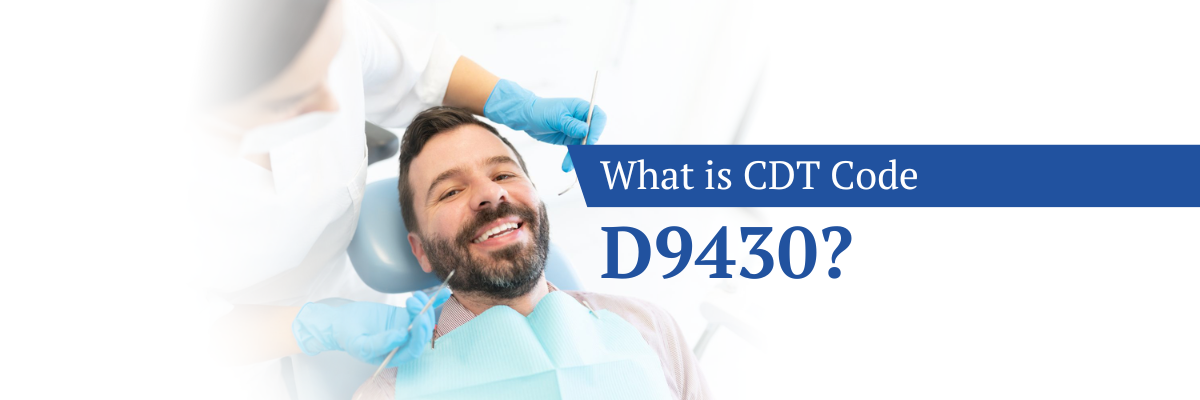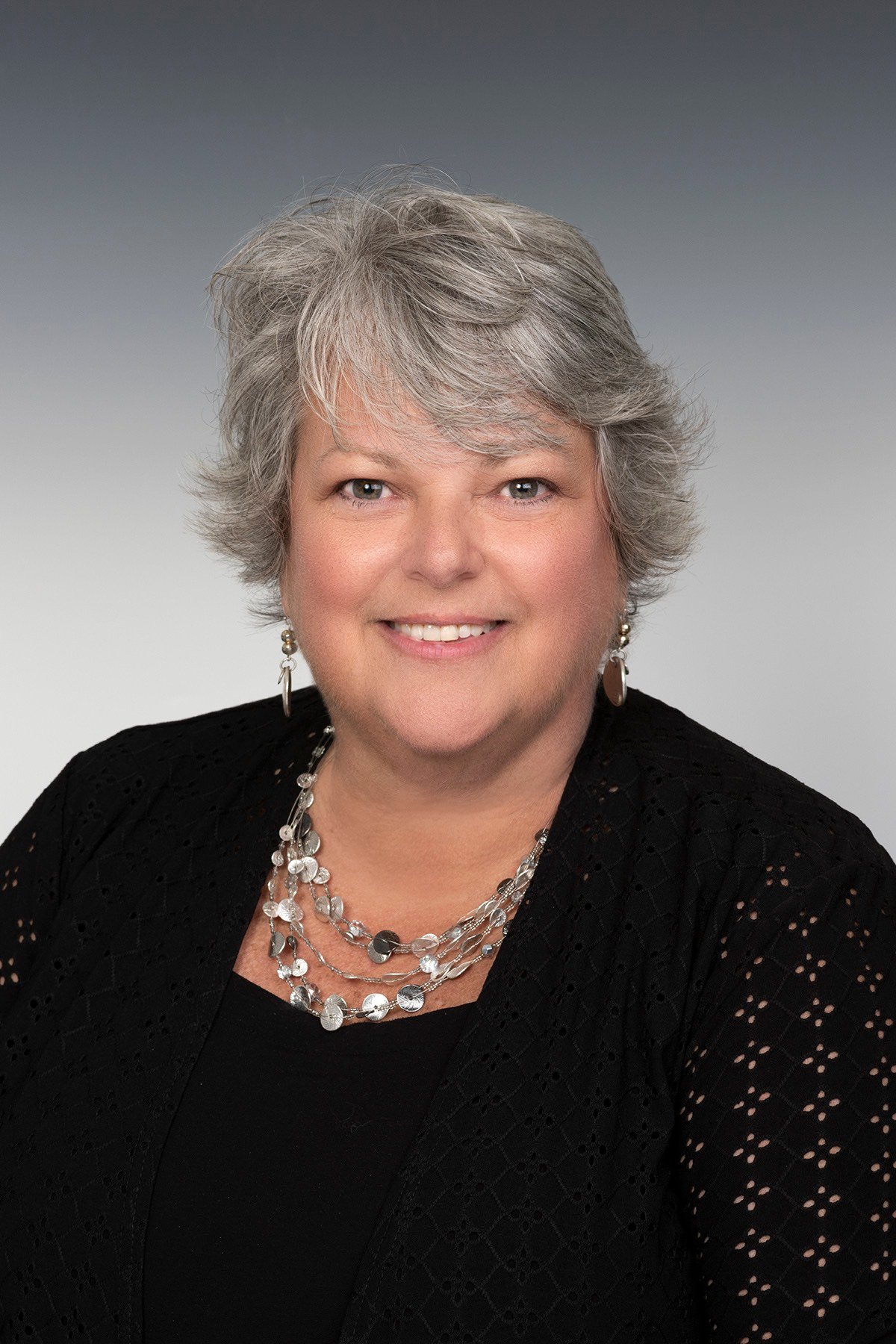Current Dental Terminology (CDT) coding is no easy walk in the park. There are dozens of codes to choose from when creating an insurance claim, and codes are changed, added, and deleted every year.
With their intricacies and frequent changes, code selection can be confusing when a patient’s treatment and reason for treatment are not straightforward.
But as a dental professional, it’s vital to get these CDT codes right — your insurance claims revenue depends on it. Dr. Bicuspid explains it well:
“Choosing the correct code is about selecting the most current code that fits the procedure, not a code that paid in the past or one that you have always used in the same circumstance.”
Code D9430 is a code we see questioned pretty often, so we’re clearing up the confusion with this article. But how do we know what’s correct?
Well, since 2012, we’ve helped dental teams understand and stay current with CDT codes. Our billing experts are part of what we call The DCS Knowledge Network. It’s our pool of insurance billing specialists who confidently stay up to date on all things dental insurance — including coding.
This article will explain the difference between the often mismanaged: CDT code D9430, CDT code D0140, and CDT code D0171. Recognizing the difference between these CDT codes will ensure proper use of each code to avoid claim denials due to coding errors.
CDT Code D9430 explained — Understanding the observation visit
Let’s first look at the descriptor of D9430.
D9430 office visit for observation (during regularly scheduled hours) ⎼ no other services performed
Two key phrases in the D9430 nomenclature are “during regularly scheduled hours” and “no other services performed”. No other services performed includes evaluations in addition to any treatment. The phrase “no other services” does not include post-operative oral hygiene home care instructions.
Sometimes you just need to bring the patient back for observation following treatment when the office is usually open. This is a common use of code D9430, and it seems simple enough. But….
Related: CDT Codes: Current Dental Terminology explained
How does CDT Code D9430 relate to D0140, D0171, and D9440?
Next, let’s define code D0140.
D0140 limited oral evaluation – problem focused
This suits an evaluation limited to a specific oral health problem or complaint, and it may require interpretation of information acquired through additional diagnostic procedures. Be sure to report additional diagnostic procedures separately with their appropriate codes.
Definitive procedures may be required on the same date as the evaluation. Typically, patients receiving this type of evaluation present with a specific problem and/or dental emergencies, trauma, acute infections, etc.
D0140 may be reported for a new or established patient. This is not to be reported when a comprehensive oral evaluation was actually performed, however. A few examples of a limited oral evaluation include:
- Evaluation of an emergency patient presenting with a problem or pain
- Evaluation of tooth replacement such as implant placement
- Any other specific problem where the evaluation specifically addresses one problem, limited area of the oral cavity, or complaint.
But what about D0171?
D0171 re-evaluation – post-operative office visit
This code was created to give providers a way to document post-operative visits. Most dental plans consider a re-evaluation post-operative visit inclusive to the procedure being performed.
Consider that the global period for inclusive follow-up care may be defined as 30 days for restorations such as fillings, or 6 months following delivery of appliances such as dentures.
And what is D9440?
D9440 office visit – after regularly scheduled hours
Similar to D9430, but the difference here is the office visit is completed after hours.
How do I apply CDT Code D9430 in my dental office?
Now that we’ve defined each code, let’s go through a scenario in which you could apply CDT code D9430 instead of the others.
The patient presented for two post-operative visits. At the first post-operative visit, sutures were removed and oral hygiene home care instructions related to the surgical area were provided.
The CDT code for oral hygiene instructions is D1330. Most dental plans consider instructions a part of the visit, so they are not billed separately. Still, you would include D1330 for documentation purposes.
So, for post-op visit #1, you would use the codes:
D0171 re-evaluation – post-operative office visit
D1330 oral hygiene instructions were reported for the first post-operative visit
Six weeks later, at the second post-operative visit — the final post-operative appointment — either D0171 or D9430 can be used, depending on whether additional treatment was performed or not. If there was additional treatment, then the following codes would be appropriate::
D0171 re-evaluation post-operative office visit
D1330 oral hygiene instructions
Or if additional treatment wasn’t performed, the appropriate codes would be:
D9430 office visit for observation (during regularly scheduled hours) – no other services performed
D1330 oral hygiene instructions
Remember to include D1330 and other non-billable codes even though they aren’t reimbursed. Precise documentation is necessary for both medical and legal reasons, so it’s important to code everything that was performed, whether or not insurers will pay foor it.
Now, here’s a scenario where D9430 would not be used…
The patient presented for an emergency visit complaining of pain in the lower right, pointing to tooth #31. One periapical radiograph was captured, and the doctor performed an evaluation.
A radiographic image revealed a suspicious area at the apex of the tooth. No treatment was performed. The patient was referred to the endodontist for further evaluation of possible abscesses. The following codes would be used to document and report this emergency visit.
D0140 evaluation – problem focused
D0220 periapical x-ray – first image
Note that code D9430 could not be billed in this circumstance, because D9430 specifies no other services were performed, and D0220 is considered another service.
Confused? Access our DCS Knowledge Network
Documentation is key to claim acceptance, and as you see in the examples above, it can be quite specific. Your team should always document and report what was performed by following the current CDT code set. Train them on accurate code selection and maintain a current CDT manual for their reference.
It is worth noting that D0171 is most often considered part and parcel of the original treatment, and with a PPO plan, D0171 will be denied and written off. However, codes D9430 and D9440 are usually considered a non-covered service, and they can be billed to the patient, even with a PPO plan.
As always, coding should be determined by what was actually done. A patient’s available dental benefits, or lack thereof, should not determine the code used to document and report. But if there is an opportunity to decide which code to choose, knowing your compliant alternative code options will be useful.
Code confidently with the DCS Knowledge Network on your side
At DCS, we know CDT coding is challenging and oftentimes confusing. As we mentioned in the beginning of this article, we’ve been helping dental teams sort out code confusion since 2012 — we may not have seen it all, but we have certainly seen a lot!
To recap, in this article on CDT Code D9430, we covered:
- CDT Code D9430 explained — Understanding the observation visit
- How CDT Code D9430 relates to Codes D0140, D0171, and D9440
- How to apply CDT Code D9430 in your dental office
Accurate coding keeps your dental practice compliant, leads to faster reimbursement on insurance claims, and also helps your practice stay out of legal trouble. It’s crucial that your team understands the nuances of these codes and stays current on CDT coding changes and updates.
If you still feel a lost or overwhelmed by these CDT codes or others, don’t worry! The DCS Knowledge Network is here to support your team through the entire insurance claims process.
Our full-service revenue cycle management services include experts checking that your team is coding correctly. Our team’s support will increase your team’s confidence and lead to higher collections, plus more consistent revenue for your practice.
Don’t let CDT coding keep you down: Book a free 30-minute call with DCS today.
Related Posts
Dental revenue resources from Dental Claim Support




